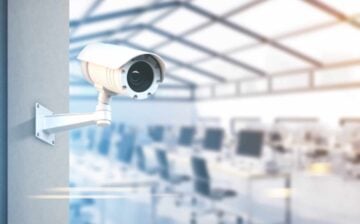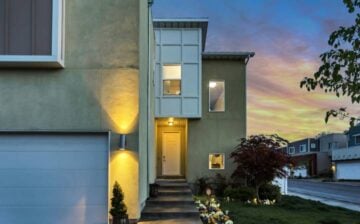Striking the balance between cost and flexibility in commercial space decisions is a major challenge for business owners. For startups eager to find their first location or established companies planning to expand, the choice between leasing and buying a commercial property carries long-term financial implications.
Leasing can provide agility, but limits control buying offers stability but requires significant upfront investment. Understanding the specific pros and cons of each option is essential to make the best choice for your business’s growth and financial health.
Understanding Your Business Goals and Financial Position
Before diving into the pros and cons, it’s essential to evaluate your business objectives and financial capabilities. Leasing provides flexibility in today’s dynamic market while buying offers long-term stability and control.
Lubbock, Texas, with its economic growth, affordable property rates, and supportive business environment, is an attractive option. Reviewing commercial property for sale in lubbock texas can reveal valuable insights and investment opportunities. Taking the time to assess both options carefully will help align your choice with your business goals and financial strategy, ensuring a solid foundation for future growth.
Key Factors to Consider:
- Business Life Cycle Stage: Are you in growth mode or seeking stability?
- Financial Resources: How much capital can you allocate to real estate?
- Location Requirements: Do you need to be in a specific area?
- Growth Projections: How might your space needs change in the next 3-5 years?
Pros of Leasing Commercial Space
-
Lower Initial Investment
Leasing typically requires minimal upfront costs compared to purchasing. While buying often demands a 20-30% down payment, leasing usually only requires:
- First month’s rent
- Security deposit
- Minimal renovation costs
-
Flexibility and Scalability
Leasing provides valuable flexibility, including:
- Easier relocation options
- Ability to upgrade or downsize as needed
- Short-term commitments (typically 3-5 years)
- Quick adaptation to market changes
-
Predictable Monthly Expenses
Leasing offers several financial advantages:
- Fixed monthly payments
- Most maintenance costs are covered by the landlord
- No unexpected major repair expenses
- Simplified budgeting process
-
Access to Prime Locations
Many businesses can afford to lease in premium locations where purchasing would be cost-prohibitive, often enhancing visibility and customer access in desirable areas.
Cons of Leasing Commercial Space
Limited Control Over Property
Leasing often comes with restrictions that can frustrate tenants, including:
- Restrictions on renovations and improvements
- Limited branding opportunities
- Dependency on landlord decisions
- Potential conflicts over maintenance issues
No Equity Building
Monthly payments don’t contribute to ownership, meaning:
- No property appreciation benefits
- No opportunity for rental income
- Limited long-term asset development
- No tax benefits from property ownership
Rent Increases
Leasing exposes businesses to potential rent hikes, leading to:
- Unpredictable long-term costs
- Potential forced relocation due to rising costs
- Limited negotiating power
- Exposure to market volatility
Pros of Buying Commercial Space
Building Long-term Equity
Owning property can provide substantial financial advantages over time. With commercial real estate typically appreciating, ownership enables businesses to benefit from the property’s increasing value. Additionally, unused space can generate rental income, transforming a liability into an asset that supports the business financially. Owning the property also creates a valuable asset that can serve as collateral, contributing to long-term wealth building.
Complete Control
Property ownership grants complete control over various aspects of the space, including modifications, branding, and layout, which can enhance brand presence and customer experience. Unlike leasing, where modifications may be restricted, ownership enables business owners to make decisions on signage, operating hours, and subletting unused portions as they see fit, without needing landlord approval.\
Tax Advantages
Owning commercial property offers several tax-related benefits. Business owners can often deduct mortgage interest, depreciation, and property taxes, significantly lowering taxable income. Additionally, improvements to the building may qualify for deductions, allowing owners to maximize financial benefits while enhancing the property’s functionality and value.
Fixed Costs
Long-term financing on property provides predictable monthly payments, shielding owners from the potential fluctuations that can accompany rent increases. This stability in occupancy costs makes budgeting easier and allows for better long-term financial planning, as owners are not exposed to the volatility of the rental market, fostering a more stable financial environment for the business.
Cons of Buying Commercial Space
High Initial Investment
Purchasing commercial property demands a considerable upfront financial commitment, which can be a barrier for many businesses. In addition to the 20-30% down payment, buyers must cover closing costs, fees, and any initial renovations to make the space usable. Owners also need to set aside an emergency fund for unexpected expenses, ensuring they can handle repairs or other urgent needs without disrupting operations.
Ongoing Responsibilities
With property ownership comes a host of ongoing obligations that require time, money, and resources. Owners are responsible for maintenance and repairs, paying property taxes, securing adequate insurance, and managing the property’s day-to-day needs. These responsibilities can become a significant burden, particularly for smaller businesses without dedicated property management support.
Reduced Flexibility
Owning property can limit a business’s ability to adapt quickly to changing needs or market conditions. Relocating is difficult, as is expanding or downsizing, due to the commitment involved in property ownership. Additionally, selling a commercial property can be challenging, especially if the market is unfavorable, making it harder to convert the asset into liquid funds if necessary.
Leasing vs Buying Commercial Space
| Factor | Leasing | Buying |
| Initial Investment | Low (1-3 months’ rent) | High (20-30% down payment) |
| Monthly Costs | Higher but predictable | Lower with a fixed mortgage |
| Maintenance Responsibility | Minimal | Full responsibility |
| Tax Benefits | Limited to rent deduction | Multiple deductions available |
| Flexibility | High | Limited |
| Equity Building | None | Yes, with appreciation |
| Control Over Property | Limited | Complete |
| Long-term Value | No asset ownership | Property Appreciation |
Financial Considerations and Decision-Making
Cost Analysis
When evaluating your options, consider the following factors:
- Total cost of ownership vs. lease payments
- The opportunity cost of capital
- Tax implications
- Potential property appreciation
Risk Assessment
Key risks to evaluate include:
- Market volatility
- Business growth projections
- Location stability
- Industry trends
Wrapping Up
Choosing between leasing and buying commercial space is a critical decision with lasting effects on your business’s finances, flexibility, and growth potential. Leasing offers adaptability and lower upfront costs, making it ideal for businesses needing flexibility. Buying, however, provides long-term stability, control, and equity-building opportunities. By carefully evaluating your business goals, financial resources, and future needs, you can make a choice that supports your company’s success and aligns with its strategic vision.
Frequently Asked Questions (FAQs)
What factors should I prioritize when deciding between leasing and buying commercial space?
Prioritize financial flexibility, business growth projections, and location needs. Consider long-term goals, adaptability, and the upfront investment each option requires to determine the best fit.
Is leasing better for startups, or should I consider buying for long-term growth?
Leasing often suits startups due to lower costs and flexibility. For established businesses focused on stability and equity, buying can offer long-term financial and operational advantages.
How can I manage the financial risks involved in buying commercial property?
Mitigate risks by maintaining an emergency fund, securing fixed-rate financing, and analyzing market trends. Consult financial experts to ensure affordability and safeguard against unexpected costs.
We hope you found this blog post on What Are the Pros and Cons of Leasing vs. Buying Commercial Space? useful. Be sure to check out our post on Things To Look For In a Commercial Property Investment for more great tips!
Have Experience in the Moving Industry? Want an Additional Income Stream? Work With All Around Moving!
You can make extra money by adding a new revenue stream. Every step of the journey, we’ll be there for you. Partner with us and we’ll help you profit. Click here to learn more.






